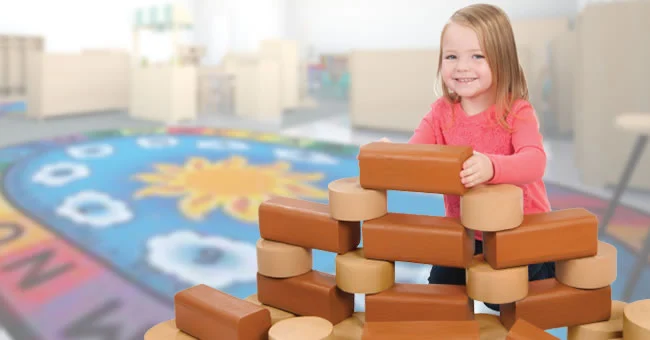Introduction:
The Significance of Kindergarten Building Materials
Preschool blocks are essential tools in early education. These easy-to-use toys are critical in the building up of different skills among young children. From cognitive and motor skills to social interaction, pre-school blocks offer a scope of educational benefits so important that they become inevitable must-have for any kindergarten.
The Relevance of Preschool Blocks
Preschool blocks are not simply playthings but foundational elements that contribute to development. Recognizing this importance will help teachers and parents use them more effectively.
Advantages of Preschool Blocks
- Cognitive Development: Problem solving abilities, spatial awareness as well as logical thinking are stimulated by preschool blocks. They learn about shapes, sizes and patterns when children participate in block play.
- Motor Skills: Manipulating blocks improves fine motor skills as well as hand-eye coordination. Precision and control which are key in writing and other tasks are practiced here.
- Social Skills: By engaging with blocks collectively, children also promote sharing, communication among peers as well as cooperation.
- Creativity and Imagination: As kids build various structures with the help of blocks, they tend to think creatively leading to innovative and imaginative playing
Different Types of Preschool Blocks
Wooden Blocks
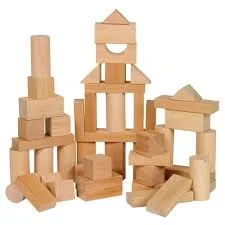
Wooden blocks are timeless and hardy as compared to plastic ones which lack tactility. They come in different shapes and sizes, thus possibilities for building and learning are endless.
Foam Blocks
Foam blocks are lightweight and safe for small children. They can be easily handled by little hands while playing, reducing the chances of accidents.
Magnetic Blocks
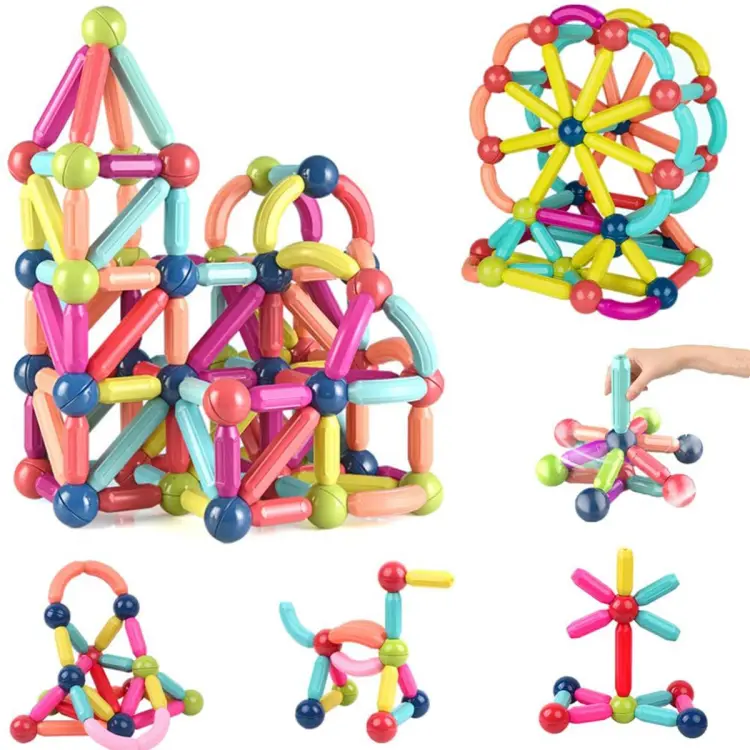
By defying gravity, magnetic blocks add another dimension to block play. These blocks serve a useful purpose in teaching basic concepts of physics as well as promoting originality.
Themed Blocks
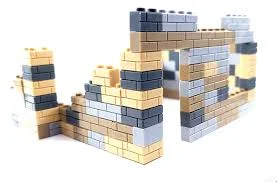
Learning is integrated with play through themed blocks such as those that have letters, numbers or animals on them. Thus these types of toys not only make learning fun but also teach children the most important things about it.
How to Incorporate Preschool Blocks in Learning Activities
Structured Activities
Preschool block structured activities may focus on specific educational outcomes. For instance, using patterns or grouping blocks according to size and color helps children understand sequencing and categorization.
Free Play
Children’s imagination is developed when they engage in free play activity. Allowing enough time for unstructured block play fosters creativity and problem solving skills.
Group projects involving blocks can serve as a catalyst for teamwork and social skills. Constructing a large building together is an activity that requires communication, coaction, and solving problems.
Research on Preschool Blocks and Child Development
It has emerged in previous research that playing with blocks helps children to develop their cognitive as well as motor abilities more than those who do not engage in such activities. This research was done by National Association for Education of Young Children (NAEYC) which found out that block play improves spatial reasoning necessary for success in STEM subjects like Science, Technology, Engineering and Mathematics.
Practical Tips for Using Preschool Blocks
Choosing the Right Blocks
When choosing preschool blocks, it is important to keep the age and developmental level of the kids in mind. Make sure that the blocks are safe, durable and are also suitable for your child’s skill level.
Creating a Block Center
Designate a place for playing with block at home or school. The area should allow free exploration so that children can build without any restrictions.
Rotating Blocks
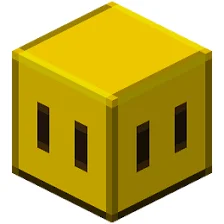
Change the kinds of blocks available to sustain interest in block play while challenging children. This way we can introduce new shapes sizes or themes hence keeping block play interesting and educational
COMMON HURDLES ENCOUNTERED AND POSSIBLE SOLUTIONS
Lack of Interest
If children demonstrate lack of interest in block play, consider introducing them to new forms of blocks or incorporating blocks into various activities that they enjoy.
Limited Space
For smaller areas, select stackable or magnetic pieces which can be used vertically to save space. Ensure the block area is organized well to maximize the available space.
Safety Concerns
Always ensure young children are supervised during block play to prevent choking risks. Select large enough blocks that cannot be swallowed and check them for damage regularly.
Conclusion
Preschool blocks are early Childhood Education’s Powerful Tool Kit .Each type has a different function; hence it is essential to know what each does. Additionally, such toys should be included in both structured and free play covers while tackling popular issues that parents and teachers normally face so that their educational roles are enhanced.
FAQs about Preschool Blocks
What Age is Appropriate for Block Play?
Block play can start as soon as babies turn six months with big soft blocks. As children grow older, they may transition from using simpler bigger blocks to more complex smaller ones.
How Do Blocks Enhance STEM Learning?
By teaching basic engineering principles, spatial reasoning and problem-solving skills, early childhood educators provide a foundation for STEM education in the future.
Can Block Play Help with Language Development?
Yes, through describing their creations as well as following instructions and telling stories language development will be occurred by block playing.
How Do I Get My Child to Play With Blocks?
Diversify blocks and include them in diverse pursuits. Show increased interest in playing with blocks and get involved as a way of pushing your child.
Are Digital Block Games Good for Children?
Digital block games can act as a supplement to the physical block play, which introduces new challenges and ideas into the system. However, the physical block play is vital for hands-on learning and development of motor skills.

Russell F. Jones, holding a Master in psychology from the University of Florida. He writes for Smart Parent Solutions, offering practical advice on parenting and child development. His engaging content helps parents navigate family life with confidence and ease. Russell enjoys sharing his knowledge and spending quality time with his family.
